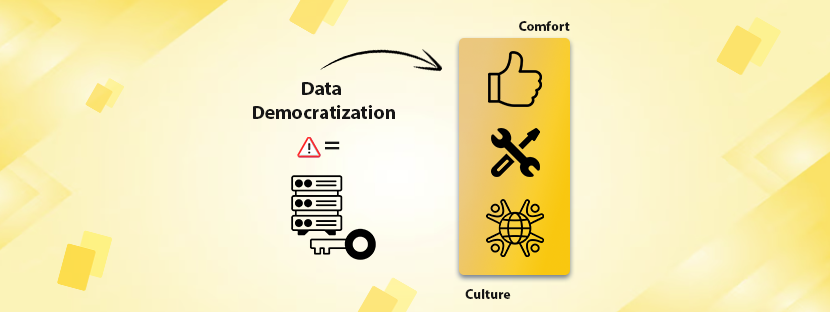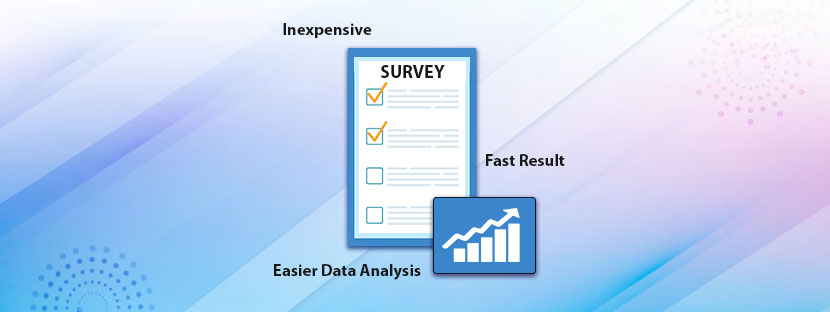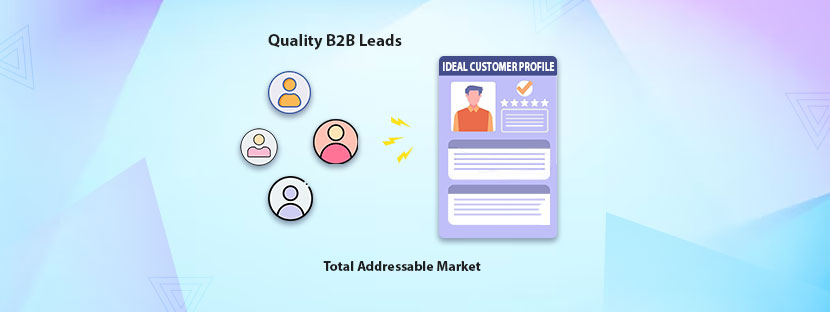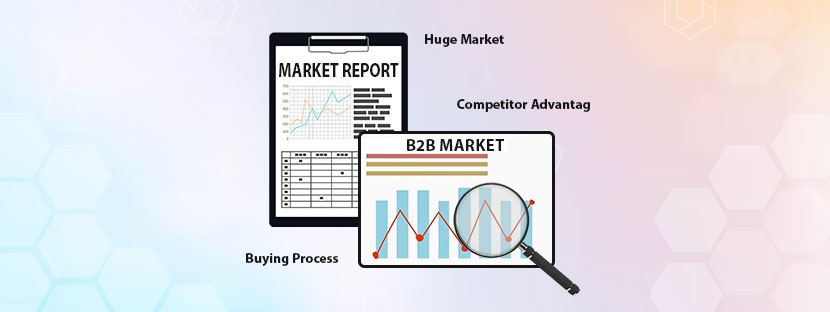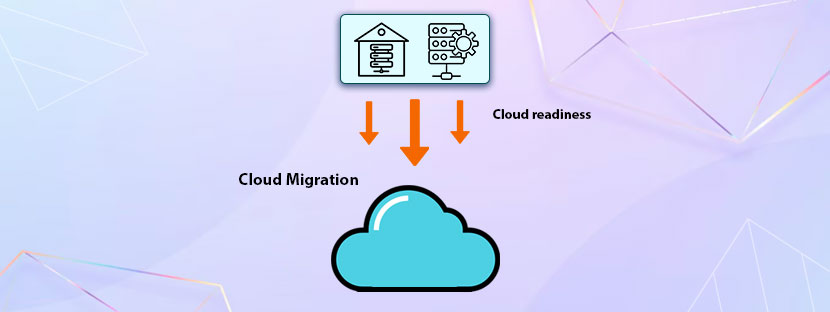In This Article
If establishing a collaborative data environment at your organization is your primary aim, you have to go through data democratization.
It lets your accounts team access CRM data whenever needed, and similarly, your product development team can access sales data if needed. Data democratization makes everything accessible to everyone within the organization’s setup.
Let’s drill down further into the concepts of data democratization in this comprehensive blog.
What is data democratization?
Data democratization is the name of a process that makes data and insights accessible to all employees and stakeholders. Besides democratization, it also makes people educated on how to work with data, irrespective of their technical background. Basically, it upholds data for everyone.
In simple words, anyone from your organization can gather data from other sources once you have implemented the data democratization principle.
Before data democratization, there was a huge and lengthy process in place. In which a considerable amount of time gets wasted only to find reliable data from the stored database. But democratizing data has made everything (data finding) simple and quick.
Primary Purpose of Data Democratization
As you get to know about the democratization of data, it makes the data easily accessible for every user; now it’s time to understand the core purpose behind it.
Before data democratization, organizations used to face two types of issues;
One, a barrier to accessing the data, &
Two, non-technical people couldn’t understand the data
However, data democratization directly addressed all the issues and solved them. Now, it ensures that the right people (beyond technical expertise) can access the right data at the right time for the right purpose. Data users can make informed decisions and identify potential opportunities without applying any in-depth data knowledge. That’s the main purpose of data democratization.
Democratized data serves different purposes for different departments across an organization. For example;
How Businesses Extract Benefits From Data Democratization
Democratized data is easily accessible and understood, which is the biggest advantage for business owners. Besides that, it provides many other benefits too, which are like

Breaks data silo
When data is stored in isolated system, it gives birth to data silo. Not in a just a few organizations, data silo is a globale phenomenon. Only because of data silo, the global economy loses $3.1 trillion annually.
Primarily data silo happens when information is capped inside a separated system where individual who has the access only see and use the information. Well, data democratization creates a central repository for data, so it becomes more easily accessible to anyone who needs it.
Besides accessibility, democratized data is easily shareable between teams. It encourages collaboration and cross-functional decisions. For example, you can provide feedback data for the same tasks (which is new product development, suppose) together. From marketing, sales, and customer support to product development, everyone would get the same information at the same time.
Optimize data management
The parameters of data democratization encourage to enforcement of a centralized database. They directly impacted the way your organization manages, distributes, and stores your data.
Storing all data in a centralized database is the best way to manage everything. It makes the information easy to find and manage. Providing complete data protection to democratize data is a must because many people will have access to this database.
Increase data-backed decisions
Every department of the organization can make rational use of democratized data. It makes the data easy to understand and accessible. Thus, your sales team can understand every data point of IT sales without any intervention from your IT team. Every department of your organization can make data-backed decisions without any support from a middle team. It empowers individual teams overall.
Challenges of Data Democratization and Solutions
Having a centralized database via data democratization attracts positive as well as negative outcomes. Generally, to implement full-fledged data democratization, you may encounter some hurdles.
Poor-quality data
When you implement data democratization measures into your system, you expect people across your organization to access your data from a central database. So it becomes necessary for you to maintain the quality of your data intact. The following data quality parameters may help here.
Imagine your accounts team gets CRM data access, but at a time when everything is a mess there. Your sales team may be used to it, but the accounts team cannot work with that messy CRM data, right?
Hence, the only solution when data democratization takes place is checking on data quality measures. The database is going to be accessible for all, hence all the records entered into the database should follow a uniform format. Every department should post data in an organized manner so that other departments can find and use it easily. This way can prevent data leaks and other kinds of losses.
Data security and privacy concerns
Concerns related to data security and privacy are genuine in any kind of data democratic setup. Data experts are the qualified people who generally own and manage data. They play a strong role in balancing data security and privacy parameters. But with data democratization, their hold over data becomes loose.
Gradually, the incidents of data breaches increase within the data democratic setup without any strong data security support. Establishing strong data security and privacy protocols is the only way to prevent data from potential data breaches. Following up on regulations like GDPR and CCPA can help here, since they attract heavy penalties for violating data protocols.
PS: If you are still struggling with implementing data democratization at your organization, you need strong data processing support. Relying on a professional data company can fix all your issues. They’ll focus on quality data, and it will promote data democratization.

